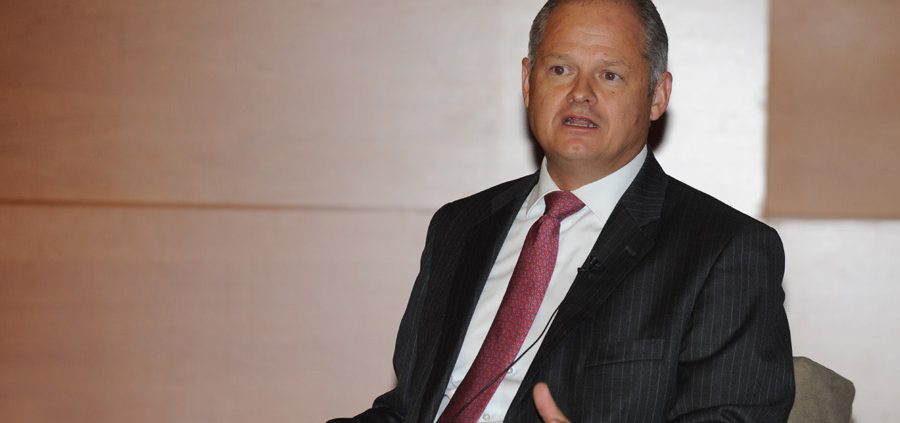An Apple in the Garage May Not Be Far Off
Prof. Marc Sachon talks to German alumni and participants about future of auto industry
Munich, February 21, 2017. – “Apple will launch a car in the next five to six years.” With these words Marc Sachon, professor of production, technology and operations management, opened a recent talk at IESE’s campus in Munich. “So who thinks this will happen?” he asked the audience.
Prof. Sachon said the reason for Apple to introduce a car boils down to the fact that the company needs a new product. Today the majority of Apple’s revenue comes from the iPhone, but recent market launches have not been producing the same effect as previous generations had. Also, the iWatch didn’t deliver as expected. “A new product is needed,” he said.
Electric, Autonomous Future for Cars
Apple’s expected entry into the automobile sector comes at a time of drastic change. Driverless cars are making headlines, and Uber too. Traditional automobile companies are collaborating with Silicon Valley players, and new start-ups and business models are emerging. At the same time, technology is becoming more affordable.
Analysts see the car of future being electric and autonomous, and predict a time when car manufacturers won’t be judged on how many cars they sell, but on how many miles their cars travel.
“The automotive sector is in a state of flux,” said Prof. Sachon, who is the longstanding academic director of IESE’s annual Automotive Industry Meeting.
The time seems ripe for a new approach to the car. AUTO is the acronym Prof. Sachon used to describe the current situation:
Aspiration for car ownership among millennials is low.
Urbanization is increasing as more and more people move into cities.
Technology is emerging and prices are falling.
Ordinances are being enacted at the municipal level to limit the number of cars in cities.
Turning iPhones Into iCars
Apple, contended Prof. Sachon, is just the right company to upend the automobile market in the face of these developments. The buzzwords are car-sharing, electric and green.
“There are reasons to assume that Apple is working on a car,” Prof. Sachon said, noting news reports on Apple’s efforts in this area. The company’s recent statement that it had put its automobile plans on ice didn’t convince Prof. Sachon.
Even after the statement, Apple has continued to hire experts from the auto sector and is investing billions in R&D: “If these investments aren’t for a car, then what are they for?”
“Now what would the Apple car look like?” Prof. Sachon asked the audience. Small, battery-powered and designed for high-density areas, was the consensus.
Sachon went further: “The car would certainly be highly standardized with as few parts as possible.” In this regard, Apple would draw on experience with the iPhone: basically one model with individualization through software. With the advent of bendable displays, individualization could be quite simple for the interior, for example.
Supply-Chain Expertise, Loyal Customers
Prof. Sachon feels that Apple has what it takes to pull it off. The company has gained extensive supply chain management experience with the iPhone, and could transfer that experience to another product such as a car.
Plenty of customers would also likely be found among Apple’s extensive and very devoted user base, which includes many people with above-average purchasing power.
A definite selling point would be seamless integration of the car into the Apple ecosystem for an ideal customer experience.
The big auto manufacturers have reason to fear, Prof. Sachon says. Though they want to enter new markets, they are held back by the “asset trap” in the form of big factories. Apple has followed a different approach, working with manufacturers and not owning the lines on which its products are made.
Prof. Sachon closed his session with the same question he asked at the beginning: “Who thinks we’ll see an Apple car in the next five to six years?” Convinced by Prof. Sachon’s arguments, many more hands went up than at the start of the evening.
» Related program: “Industry 4.0: The Future of Manufacturing”



